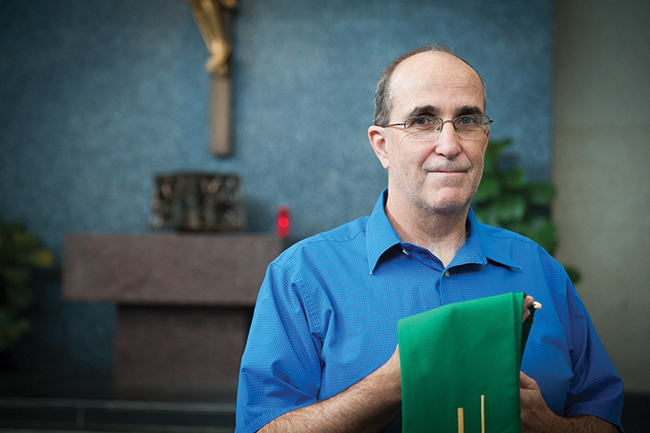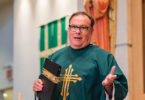
The church has recently expanded the first stage of diaconal formation, known as aspirancy, to two years. The initial period of formation for seminarians has similarly been lengthened.
Deacon James Keating explains that those who are entering formation to become clerics need more time than ever before to “recover” from the long-term effects of our American culture.
Formation is not merely the acquisition of knowledge or pastoral skills, but rather is a configuration of the entire person to Christ. Men may seek out the diaconate to “help Father,” which is a great starting point, but they need to go even deeper.
There are several aspects of our American culture that must be purified for men to minister with the heart of Christ as deacons:
The first area is instant gratification. We’re not very patient about getting what we want. Yet, future deacons must learn to patiently wait on the Lord.
Then there is anti-intellectualism, which includes both an excessive dependence on emotions (“if it feels right, do it”), and also a denial of objective truth. The church needs men who can internalize church teaching and conform their lives to it.
Another area is a broken vision of sexuality and marriage. Future deacons will be of minimal value in the culture war if they are morally and/or doctrinally compromised in this area.
Our American culture views Christianity as just another ideology or political perspective. Yet Christianity is not about trendy slogans or being liked, but rather it’s about a life-changing encounter with the living God.
Also, Americans find their value in doing, which is exactly backward. Our value comes from God first loving us and bringing us into relationship with him, which gives us our identity as God’s children, out of which flows our activity.
Then, there is self- reliance. As American men, we don’t need help and we definitely don’t need directions! Yet, the manliest thing we can do is drop on our knees and beg for God’s grace. We need men who deeply listen to their wives and who display their masculinity in their love for Mary and their solicitude for the church, especially the poor and those who have no voice.
Lastly, men have disordered interests. Many things vie for our attention and captivate our American imagination. Future deacons must be open to an in-breaking of the divine into their American worldview. They must become fascinated with the things of God.
Even from these few examples, one can readily see that formation is not so much about what is added but about what is discarded. As deacons-to-be, that’s what they’ve signed up for.
In short, the faithful expect their clergy to know God, and not just know about God.






